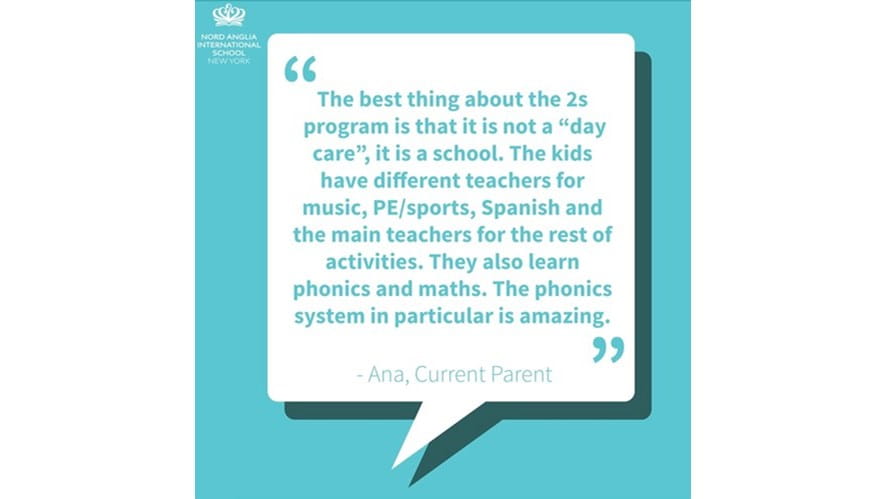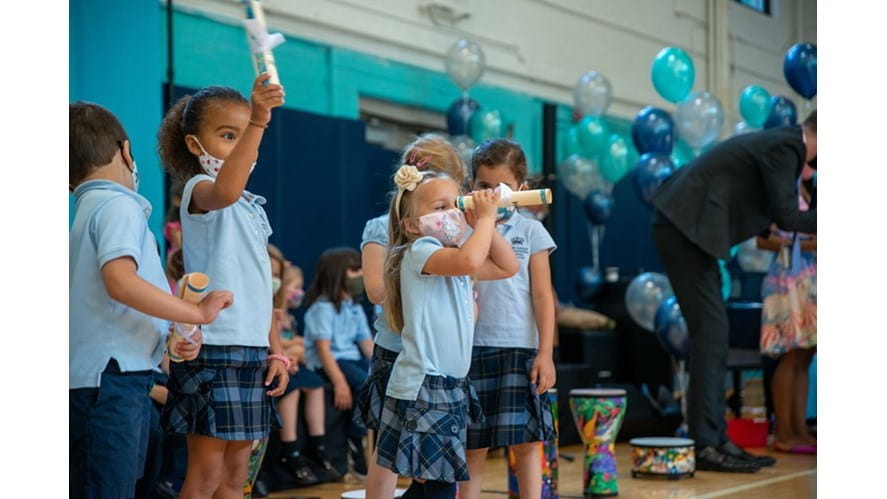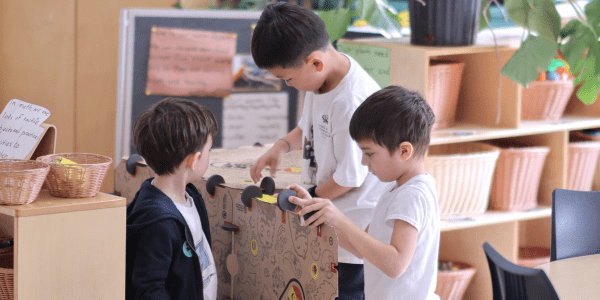Many families around the world choose a British education for their children, despite not living in the UK. Why? Although there are many similarities between the British and American educational systems: both systems want to prepare learners not only for colleges and universities around the world, but also to produce highly educated and contributing adults to enter the world and the workforce. However, there are some distinct differences, especially in the early years.
The Early Years
Throughout the United Kingdom, children begin their formal education by the age of 4, many by the age of 3 years. The English national curriculum begins with the Early Years Foundation Stage (EYFS) framework that provides parents and educators a holistic framework of milestones and benchmarks where children are developmentally. While it is play-based, it also begins formalized schooling and has an academic component. The EYFS emphasizes that each child will develop in their own time, but that this is where the majority of children are at each stage of their development. The EYFS is set up in age and stage bands that purposefully overlap, and center on developing all aspects of a young child, both socially and academically.
Typically, in the United States children may attend preschool, but generally this is part-time unless both parents work. Formal schooling is not compulsory until children are 6 years of age. In 2013 New York City decided, and put into law, that any child who is turning 4 in that calendar year is able to attend public (or state run) preschool and that kindergarten is mandatory, however throughout the rest of New York State and the United States this not normally available to all children. While not compulsory until age 6, preschool and kindergarten in New York City are highly encouraged and NYC promises to find a seat for every 4 year old, although it may not be in your neighborhood school. Kindergarten is seen as a right in New York City. Preschools and kindergartens are still offered part-time and tend to be predominantly based on socialization skills.
A notable difference is that in a British preschool, or early years program, children learn their letter sounds before the letter names. There is a systematic approach to learning all 44 sounds before learning the name of the letters. Throughout the United States, American schools and parents teach the name of the letter first and then the sounds are introduced later. In British schools, mark-making, or early writing, is highly encouraged and a deep level of mathematical understanding, such as all the ways that you can make 5, is focused on at a mastery level instead of a broader understanding and then moving on to higher numbers.
At our school, we are proud that all of our graduating pre-K students will be able to independently read and write, as well as have a firm understanding of simple number sentences. While students in our school are having fun learning, they are also making important steps in their academic journey.
Lower School (K to Grade 3)
Educational systems in the US and UK tend to have more similarities as a student progresses through the educational system. However, our school differs from other schools in New York City in that, alongside their class teacher, we offer specialist teachers in Dance, Drama, Music, Art, Spanish and PE. Our specialist teachers are highly skilled. knowledgeable and experienced and our students love their lessons! While we begin phonics as early as two years old in our school, in Lower School, students are building their literacy skills with our Read Write Inc phonics system which raises confident readers and writers. Different from the US, in the UK, students practice handwriting. Handwriting, particularly cursive handwriting, is considered important in the UK because the faster a child can write, the sooner they can get their ideas down on the page before they forget them. It is also very helpful for the future when students are taking long exams requiring hours of writing.
Upper School (Grade 4 to Grade 8)
Our Upper School is special because every teacher is a specialist teacher at this level. Students in our Upper School therefore have the same specialist teachers as those students in Lower School but they also have specialist English, Math, Science and Humanities teachers. This allows for greater specialism within subjects. We follow White Rose Math in all of our math throughout school and our highly experienced math teacher also ensures that graduating students who often go on to top tier American schools within New York have covered all the subject material that they would have done in the US system. Our humanities is also taught through the IMYC (International Middle Years Curriculum) which gives a global focus rather than a national focus which you would expect to find in a US school.









